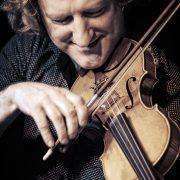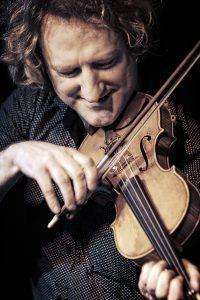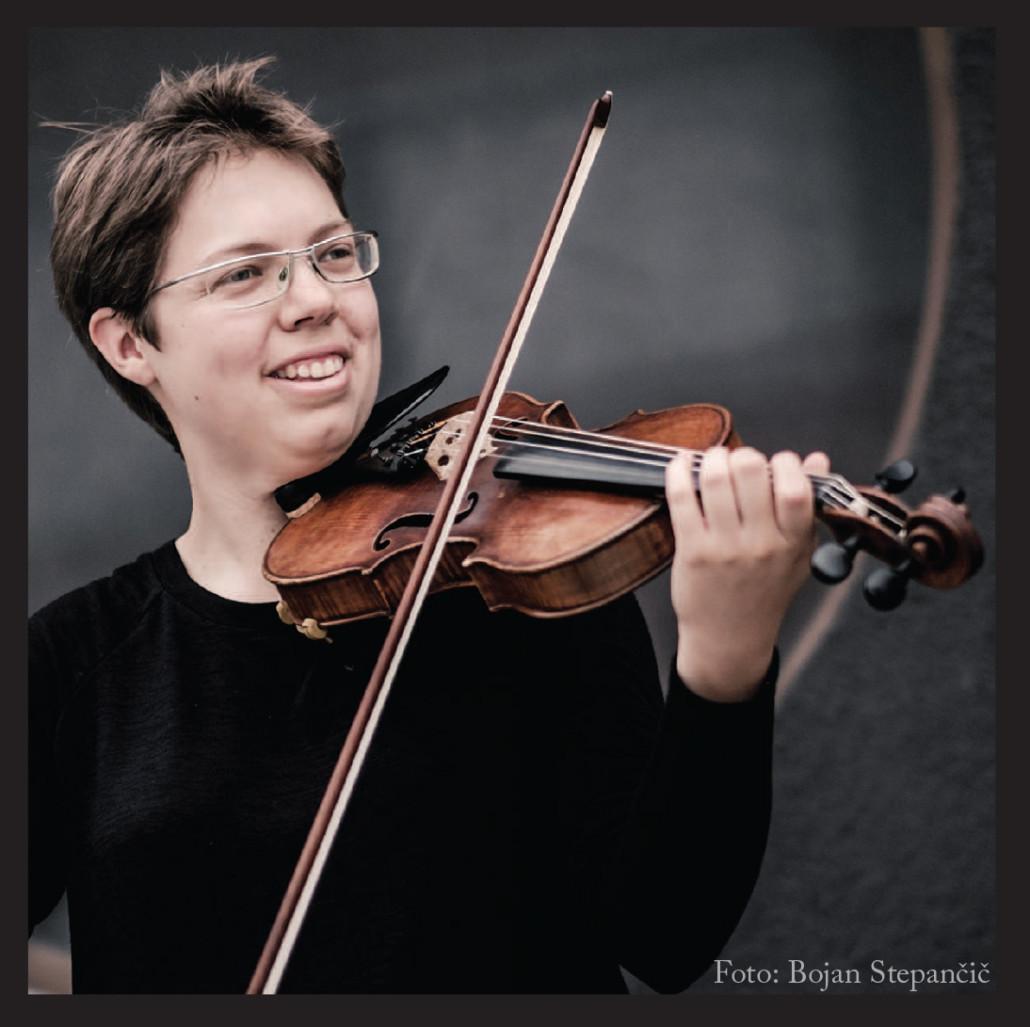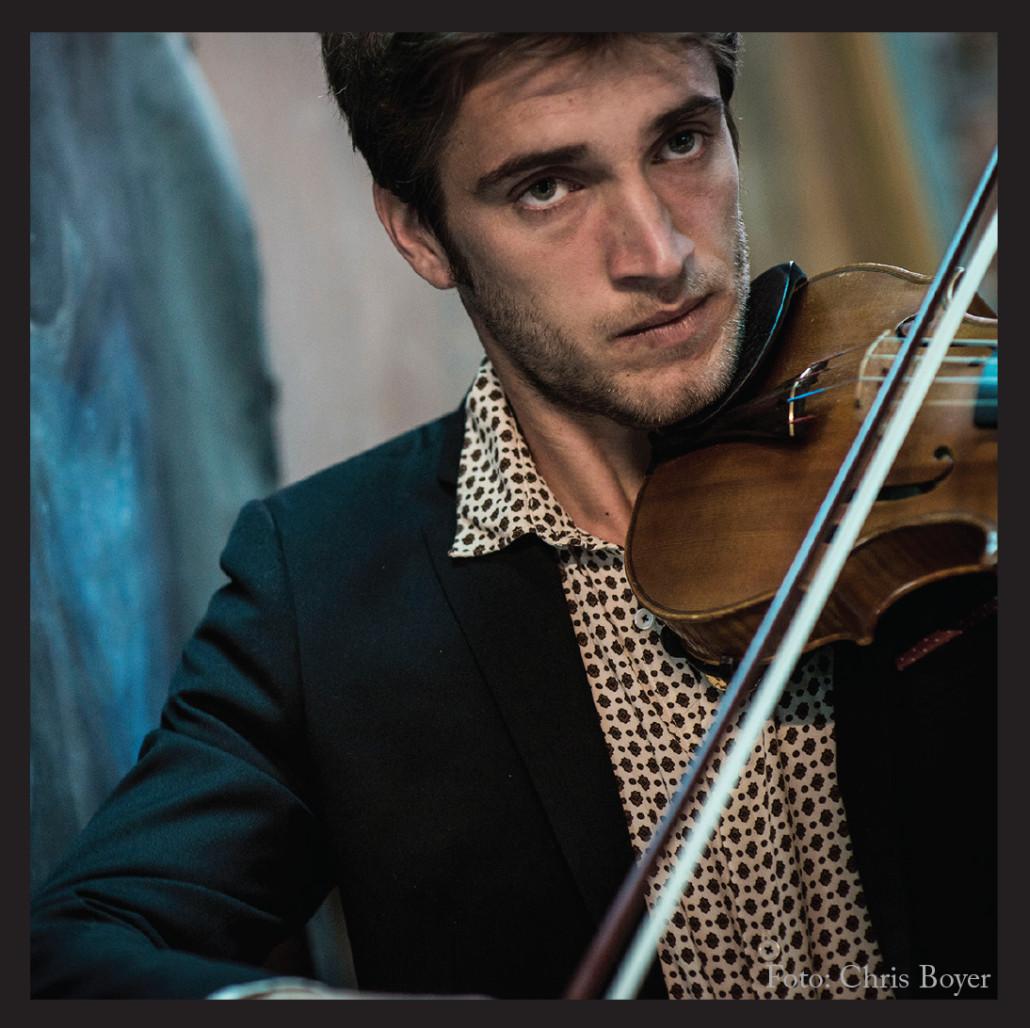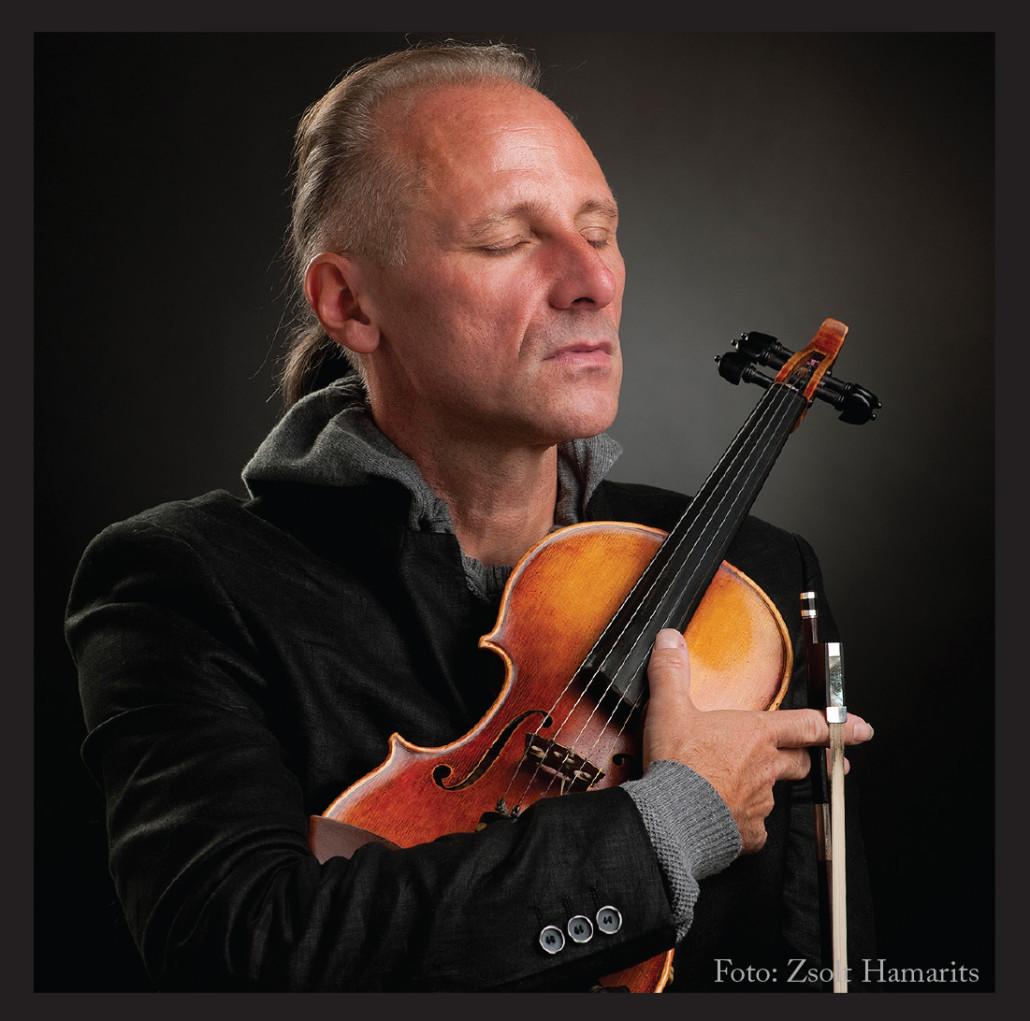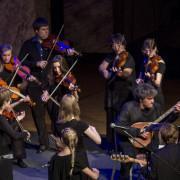When: 4–6 March 2016
Where: Rimska cesta 2b, Ljubljana
Slovenska verzija
Who:
Bojan Cvetrežnik studied classical music. He obtained his degree in viola performance in the class of prof. Mile Kosi and improved his knowledge in Klagenfurt and Berlin as well as on master classes (with Helfried Fister, Kim Kashkashian, Diemut Poppen, Tabea Zimmermann, Laszlo Barshony, Carol Rodland, Hartmud Rhode, Mathias Buchholz). He started his professional career in classical music as professor of viola and chamber music at the Maribor Music Conservatory, as well as a viola soloist with the Opera Orchestra in Ljubljana. The curiosity of the unknown and his innovative spirit soon led him to exploring various musical styles, learning other stringed instruments and composing his own music, from simple songs to scores for symphonic orchestras. He played with numerous big names of various musical styles, such as Vinko Globokar, Vladko Stefanovski, Neil Innes, Arvid Engegård, Renato Chicco, Simone Zanchini… He worked as production manager of the RTV Slovenia Symphonic Orchestra and the Jenaer Philharmonie. He was a member of the Terrafolk music group when they received the BBC World Music Award, and worked as a violinist soloist in the Canadian artistic theatre Cirque du Soleil. In 2005, he founded the ONE Music Society, committed to the equality of diverse musical expressions. In 2006, he founded the Symbolic Orchestra which brings together over 100 musicians from all over Europe and performs music in extremely diverse cultural environments. Since 2010, he has been intensively working in education of both beginners and professionals as a visiting lecturer but also within the Godalkanje programmes. He teaches elementary classes of violin in the fourth grade of the Waldorf Elementary School. When designing his methodology, he finds the biggest inspiration in self-taught musicians. He invented playful approaches to understanding musical theory, such as ‘Singing Ludo’, ‘Singing Bingo’, tablet applications and other puzzles. He likes to say: “I can only talk seriously to those who understand jokes.”
What:
TRAINING FOR VIOLIN TEACHERS
Understanding and actions in the first learning period, prior to reading notes.
Playing without notes does not mean excluding music theory. Understanding music theory allows self-taught musicians to perform music they acquired by ear on various instruments with a melodic, bass, harmonic or rhythmic role. With my students, we perform the technical placement on the violin consistently with very clear metaphors. Children are able to self-assess the correctness of a particular layout or technique and can thus seek the most suitable way for them to a relaxed play and a good listening control.
Which goals are more effectively achieved in individual, and which in group classes? I do not want to name my work as a new method, because harmful specifications are needed when defining and marketing methods. I wish teachers were flexible enough to be able to quickly write an etude or an exercise for their students, and not only use centuries-old exercises written by the best teachers of the time and intended for their disciples. This said, it is necessary to have clearly defined priorities. I put a strong emphasis on the child’s musical taste, immediate performances and the integration of music in their everyday life and other activities. You are invited to come meet swimming pools, jumpers, swimmers, airports, mountains, lowland, highways, wheels, fish, balloons and so many other fun accessories!
Video:
Timetable:
Friday, 6pm–9pm;
Saturday 10am–1pm, 4pm–7pm;
Sunday 10am–1pm, 4pm–7pm, final performance;
Participants are required to attend all workshops of the course.
Price:
150€/workshop ; 450€/yearly participation (90€/workshop)
Deadline for an application:
8 days before each workshop
Deadline for payment :
September 24th for the yearly participation.
For one course: on the day of the course.
Yearly participation has to be paid in 3 amounts of 150€ (before the September, November and January courses)
If you wish to be a part of our courses, just send a mail on: mail.specialcourses@gmail.com and we will send you an invoice.

